- Home /
- News /
- General news /
Elevating science through inclusion
13 February 2023
Leading female scientists have discussed the joys and challenges of working and studying in their fields of endeavour during a fascinating forum at Parliament House.
Held on International Day of Women and Girls in Science, the event canvassed women’s participation in science, technology, engineering and mathematics (STEM).
Presented as a joint initiative by the Parliament of Victoria, the Royal Society of Victoria, Victorian Parliamentarians for STEM, the Commissioner for Environmental Sustainability Victoria, and Inspiring Victoria, the discussion was also live streamed to an online audience who, together with the audience in the Legislative Council chamber, asked plenty of thought-provoking questions.
Hosted by science journalist Natasha Mitchell, the panel tackled a variety of topics including the gender disparities impacting STEM, the barriers to leadership women commonly face, and the ways Victoria’s education system can evolve to further foster interest for the sciences in young girls.
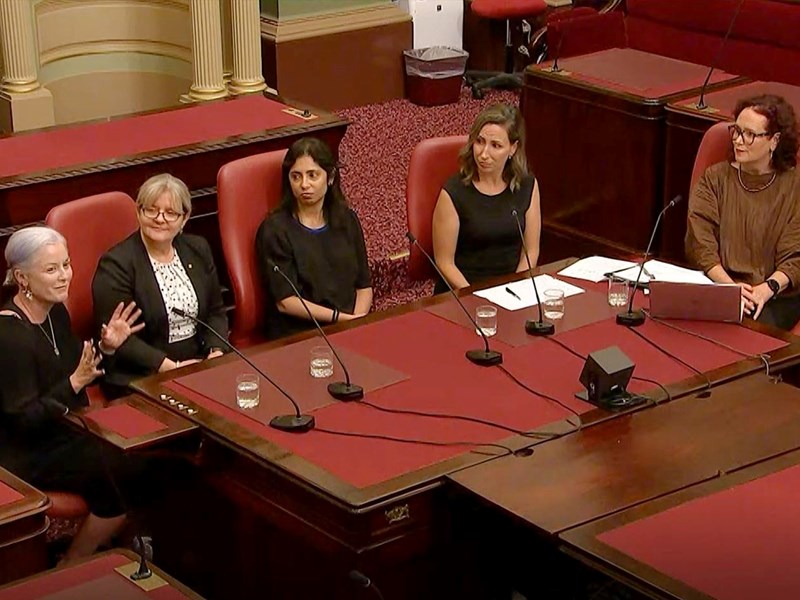
Professor Madhu Bhaskaran, a research leader at RMIT University, said the task of addressing gender disparity shouldn’t ‘rest on the shoulders of women’.
‘I know we’re fighting for representation, and we’re fighting to be on the right tables and for the right decisions to be made, but this is a people’s problem. It is not a women’s problem,’ she said.
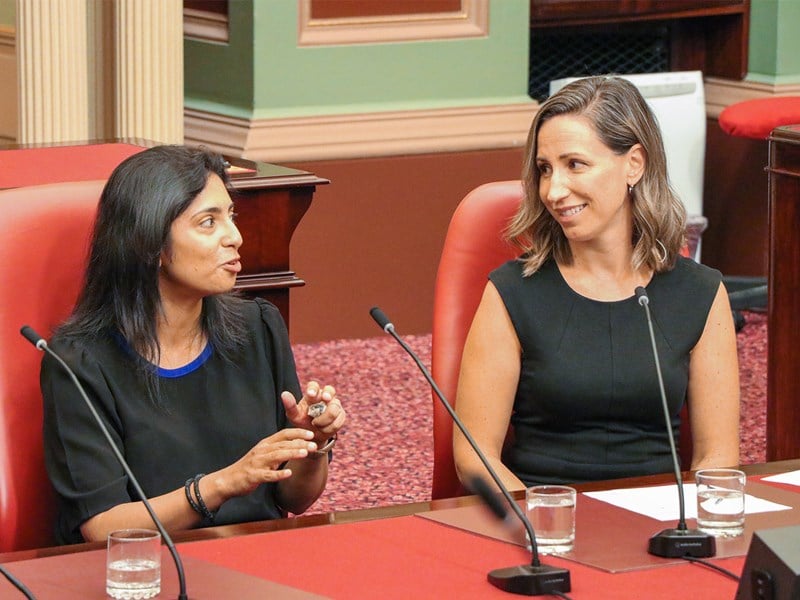
The panel spoke at length about the need for greater diversity of ideas within STEM and the ‘leaky pipeline’ that sees women and girls leave the sciences at an increasing rate as they progress through their study and into the workforce.
Dr Marguerite Evans-Galea, director of the STEM Careers Strategy with the Australian Academy of Technological Sciences and Engineering, said the decision to leave the field is often influenced by ongoing barriers including sexism, unconscious bias, and career disruptions due to childcare.
‘It’s about shifting those barriers and it’s not about fixing women,’ she said.
‘It’s about fixing science itself.’
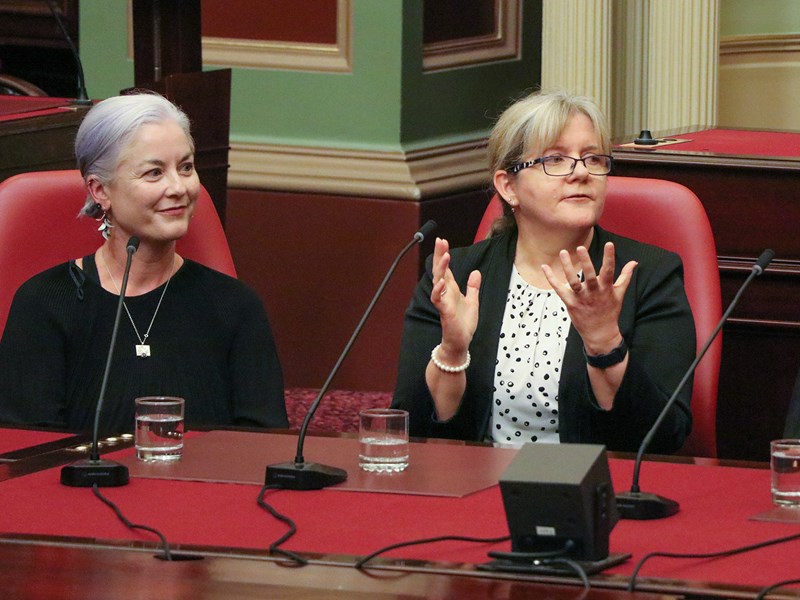
The key to breaking down these barriers to retain more female scientists is systemic change, said Dr Isabelle Kingsley, research associate for the office of the Women in STEM Ambassador.
‘Systemic change is essentially just changing the fundamental ways that things are done…so that the way we work, or the way things are, benefit everyone and not just a small select group of people,’ she said.
Examples, Kingsley said, include adopting new recruitment strategies, changing how employees are managed and promoted, and expanding our idea of what traits valuable leaders possess.
Associate Professor Sophie Adams, medical director for Austin Health’s mental health division, said STEM also stands to benefit from the unique lived experiences of women, particularly when they are promoted to leadership roles.
‘I think women have certain leadership advantages…that can create more diverse teams, be more inclusive, be more future-focused, and be a bit more collaborative,’ she said.
‘Our lived experience and the extra hurdles that we’ve overcome have forced us to learn some of these skills, and the skills of influence rather than a command-and-control kind of leadership style.’
Adams believes this approach to leadership, and the diversity injection that results from ensuring women from different backgrounds are involved in STEM, will allow us to better solve the complex problems of our time.
For exciting examples of women in leadership, Dr Evans-Galea points to parliament and Victoria’s universities, where an increasing number of women have taken on leadership roles. She says it ‘opens doors’ for others.
‘Victoria’s inspiring, I think. It’s really leading the way on gender equality,’ Evans-Galea said.
‘Now we just need to get the industry sector onboard and doing the same thing, which I believe they will.’
She said STEM has already begun to see the positive effects of cultural change.
‘What’s inspiring is that we have shifted where the bottleneck is starting to come…so now we’re hanging onto more women already,’ she said.
‘That gives the whole sector the hope because it is possible – if they can do it, we can do it.'
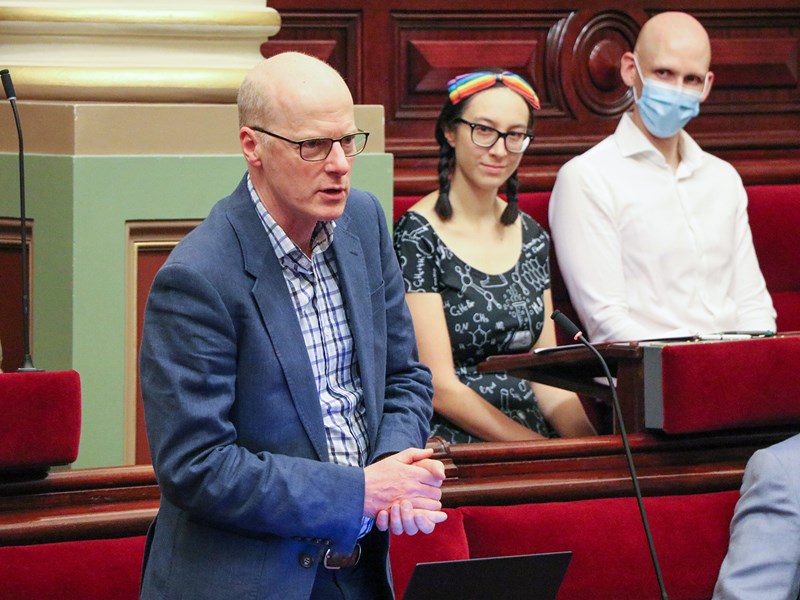
The panel also called on parliament to increase support for science teachers by providing more opportunities for professional development, and to alter the science curriculum to inspire curiosity by exposing children to ‘experiences of awe’.
‘When we have awe, we open that curiosity and creativity and we think differently about who we are, and we see ourselves in a different perspective, and we want to dedicate our life to something bigger,’ Adams said.
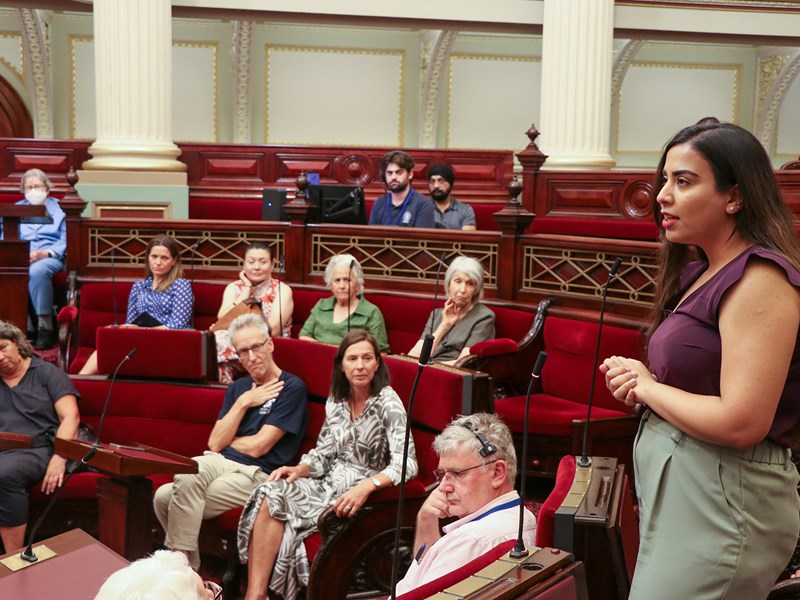
Speaking to the event’s audience, host Natasha Mitchell encouraged students to continue pursuing STEM pathways and to persevere despite the challenges that remain.
‘Just know that there are incredible people that are there to back you every step of your way, and there are networks of incredible women and girls who have each other’s back,’ she said.
‘That’s where the power lies.’
About the Author

Ellie Claringbold
A freelance writer, Ellie was a participant in the inaugural Parliament Express program conducted by the Victorian Parliament and Express Media to provide opportunities for young writers to get published on parliament's website.